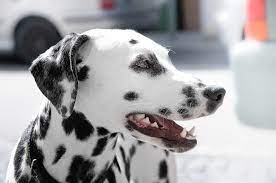As pet owners, we are responsible for the health and well-being of our furry companions. While we ensure they receive proper nutrition, exercise, and medical care, one aspect that is often overlooked is dental care. Many pet owners may wonder, “Is dental care for pets as crucial as for humans?” The resounding answer is yes. Just like humans, pets require regular dental care to maintain good oral hygiene, prevent dental diseases, and safeguard their overall health. In this article, we will delve into the reasons why dental care is vital for pets, exploring various subheadings to understand the significance of this often-neglected aspect of pet care.
Prevalence of Dental Diseases in Pets
Dental diseases are alarmingly prevalent among pets, particularly in dogs and cats. Studies have shown that a significant percentage of pets suffer from various oral health issues, emphasizing the importance of dental care in their overall well-being.
Plaque and Tartar Buildup: Pets also get plaque from diet and microorganisms. Plaque may harden into tartar (callus) if not removed. Tartar makes plaque stick to it, creating a vicious cycle.

Gingivitis: Pets with gingivitis have swollen gums. Plaque and tartar at the gum line cause redness, swelling, and pain. Untreated gingivitis may lead to periodontal disease.
Periodontal Disease: Periodontal disease, which affects gums, ligaments, and bone, is dangerous. Plaque and tartar cause gum infection and irritation. The infection may progress, causing tooth loss and possibly pet illness.
Tooth Decay: Pets seldom have dental caries. It may still happen, particularly in sugar- or carbohydrate-fed animals. Tooth decay may hurt and infect.
Broken or Fractured Teeth: Trauma, gnawing hard objects, and untreated dental problems may break or shatter pets’ teeth. Broken teeth may hurt, expose the pulp, and cause infections.
Oral Tumors: Pets can develop oral tumors, both benign and malignant, that require prompt veterinary attention. Regular oral examinations can aid in the early detection of such tumors, allowing for timely treatment.
The Impact of Dental Diseases on Pet Care
Pain and Discomfort: Gingivitis and periodontal disease may hurt dogs. Pets with inflamed gums, toothaches, and exposed nerve endings have trouble chewing and lose appetite. Pain may also cause irritation and violence.
Eating Difficulties and Weight Loss: Dental issues might affect a pet’s diet. Chewing hurts, so pets avoid particular foods or consume less. Malnutrition and weight loss might worsen their health and vitality.
Oral Infections and Abscesses: Dental problems may cause abscesses and infections. Infected gums or teeth may transfer bacteria via the bloodstream to crucial organs. Oral infections might need surgery and medicines.
Systemic Health Issues: Dental problems have far-reaching effects. Bacteria and poisons from diseased gums may enter the bloodstream and cause systemic illness. Untreated pet dental disease has been related to heart, liver, and kidney issues.
Bad Breath (Halitosis): Pets with dental issues frequently have terrible breath. Chronic halitosis is a sign of dental problems, despite its mild appearance. A pet’s breath may be greatly improved through dental care and oral hygiene.
Tooth Loss: Pets might lose teeth from advanced dental problems. Losing teeth may impair chewing, making a balanced diet harder. Missing teeth may hurt self-esteem and social connections.
Quality of Life and Behavior: Dental problems in pets may lower quality of life. Pain, discomfort, and feeding issues might cause tiredness, diminished activity, and behavioral abnormalities. They may become less playful, reserved, or distressed, affecting their well-being and relationship with their owners.
Importance of Regular Brushing for Pet Dental Care
Regular brushing is a crucial component of dental care for pets and holds immense importance in maintaining their oral health. Just as humans brush their teeth daily, pets also require routine brushing to keep their teeth and gums in optimal condition. By establishing a regular brushing routine, pet owners can effectively remove plaque and prevent tartar buildup, which are major contributors to dental diseases. Brushing also helps massage the gums, promoting good circulation and maintaining their health.
Additionally, regular brushing allows pet owners to inspect their pet’s mouth for any signs of dental problems, such as inflamed gums, broken teeth, or oral infections. It provides an opportunity for early detection and timely intervention, reducing the risk of complications. While brushing a pet’s teeth may require some patience and training, the benefits are significant, including fresher breath, reduced dental diseases, and improved overall well-being.
Pet owners should consult with their veterinarian to learn proper brushing techniques and choose appropriate toothbrushes and toothpaste designed specifically for pets. By incorporating regular brushing into their pet’s daily routine, owners can take a proactive approach to their pet’s dental care and contribute to their long-term oral health.
Professional Dental Cleanings for Pets | Oral Hygiene
Comprehensive Plaque and Tartar Removal: Even with brushing, pets develop plaque and tartar. Scaling removes plaque and tartar from teeth above and below the gumline during professional cleanings. This thorough cleaning removes oral disease-causing accumulation.
Examination and Assessment: Veterinarians check pets’ mouths during professional dental cleanings. They may check for periodontal disease, infections, oral tumors, and other dental concerns. Early detection allows for timely treatment.
Anesthesia and Patient Safety: Pet dentists usually use general anaesthesia. Anaesthesia keeps pets motionless and compliant, reducing stress, pain, and harm. It lets the vet clean thoroughly without stressing the pet. Each pet’s health state determines anaesthesia methods, reducing dangers.
Veterinarian dental cleanings for dogs are essential. Regular at-home brushing is important, but it may not solve all dental issues. Professional cleanings clean teeth and gums more thoroughly.
Deep Cleaning of Hard-to-Reach Areas: Professional cleanings remove germs and plaque underneath the gumline, which may harm tooth support structures. Regular brushing cannot remove tartar and calculus from these hard-to-reach places, therefore the veterinarian utilizes special equipment.
Polishing and Smoothing: After cleaning, the vet polishes the teeth. This prevents plaque buildup, making regular brushing simpler.
Follow-up Recommendations: The vet may prescribe further dental care after the cleaning. Home care recommendations might include toothbrushes, toothpaste, dental chews, and rinses. They may also suggest future dental checkups or procedures like extractions or periodontal therapy.
Dental Care Products for Pets | Oral Hygiene
- Dental chews help mechanically remove plaque and tartar from a pet’s teeth.
- Dental rinses and water additives promote oral hygiene when added to the pet’s drinking water.
- Dental wipes can be used to clean a pet’s teeth and gums.
- Pet-specific toothpaste is safe for ingestion and aids in plaque removal during brushing.
- Oral gels combat plaque and freshen breath, often containing enzymes or antimicrobial agents.
Importance of Oral Examinations for Pet
Regular oral examinations by a veterinarian are of utmost importance in maintaining the oral health of pets. During these examinations, the veterinarian can thoroughly assess the pet’s teeth, gums, and oral cavity, identifying any signs of dental diseases or abnormalities. Early detection of dental issues allows for timely intervention and appropriate treatment, preventing the progression of diseases and potential complications.
Oral examinations also provide an opportunity to address any concerns or questions regarding a pet’s oral hygiene routine and to receive guidance on proper dental care. By prioritizing regular oral examinations, pet owners can ensure that their pets receive comprehensive dental care, leading to improved oral health and overall well-being.
Lifestyle and Longevity | Pet Dental Care
Lifestyle plays a significant role in the longevity and overall health of both humans and pets. Adopting a healthy lifestyle can have a positive impact on extending the lifespan of our beloved animal companions. Here are some key factors that contribute to a healthy lifestyle and increased longevity for pets:
Balanced Diet: Pets need a healthy diet. A balanced diet gives them the nutrition, vitamins, and minerals they need for good health. A veterinarian should evaluate a pet’s diet depending on age, breed, size, and health issues.
Regular Exercise: Pets need exercise to be healthy, avoid obesity-related disorders, and lose weight. Walks, playing, and interactive games keep dogs busy and occupied. Age, breed, and health determine the pet’s activity needs.
“Dental care for pets is just as crucial as for humans. Good oral health contributes to their overall well-being and can significantly impact their quality of life and longevity.”
Dr. Chirag Chamria
Preventive Veterinary Care: Regular veterinarian checkups and preventative treatment are essential for pet health and early disease detection. Preventive veterinary care includes vaccinations, parasite prevention, dental treatment, and bloodwork. Pets may live longer and healthier by swiftly treating health issues.
Dental Care: Pets’ dental health is important. Regular brushing, expert cleanings, and dental care products prevent dental illnesses, which may impact the pet’s oral and systemic health. Pets live longer with good dental hygiene.
Conclusion
In conclusion, dental care for pets is undoubtedly as crucial as it is for humans. By prioritizing their oral health, pet owners can ensure their furry companions lead comfortable, pain-free lives while minimizing the risk of dental diseases and related systemic health issues. Regular brushing, professional dental cleanings, and the use of dental care products are essential components of a comprehensive dental care routine. Remember, by investing in your pet’s dental health, you are investing in their overall well-being and happiness. So, let’s prioritize dental care for our beloved pets and give them the healthy smiles they deserve.
© All rights reserved by Royal Dental Implants Pvt Ltd
Issued in public interest






